- Administrator
- Albums and Singles
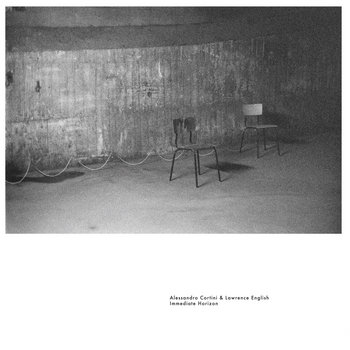
Having become mutual admirers of each others work; English of Cortini's Sonno and Cortini of English's Wilderness Of Mirrors, the pair were very pleased to receive an invitation to collaborate together.
Following a number of months exchanging compositional ideas and materials, Cortini and English met several days ahead of the Berlin Atonal festival and commenced an intense period of rehearsal and arrangement. The resulting piece, Immediate Horizon, traces their shared interests in harmony and texture. It is a work that meditates on saturation and the ruptures that occur when harmonic elements are stacked. Immediate Horizon's five pieces swell and burst in a perpetual sense of pulse.
This LP is a live recording, made at the premiere of the piece, held at Kraftwerk in Berlin.
More information can be found here and here.
Read More
- Administrator
- Albums and Singles
TUTTI
THE NEW SOLO ALBUM
by COSEY FANNI TUTTI
available 8th February 2019
Vinyl, CD, Digital, Streaming

released by Conspiracy International on 8th February 2019.
TUTTI is comprised of eight soundscapes: an audio self portrait comprising of manipulated sound recordings from Cosey’s life, music and art: “It’s the only album I’ve made that is an all encompassing statement expressing the totality of my being. A sense of the past in relation to the present and everything in between.”
Available on Blue Vinyl or Gatefold CD the physical releases feature silver blockfoil embossed covers and the vinyl release include printed inner sleeve and download code.
TUTTI RESOURCES PAGE
(headshots, pack shots, press release)
Tutti
Drone
Moe
Sophic Ripple
Split
Heliy
En
Orenda
Read More
- Administrator
- Albums and Singles

Recorded Doon, Dungarvan, Plaistow, Shoreditch, Singö, Stratford 2018.
Releases November 20, 2018 on Erstwhile.
Read More
- Administrator
- Albums and Singles
 Originally only available on cassette during dal Forno's summer tour, this EP of six eclectic covers is now available digitally. As anyone who has heard her occasional NTS Radio DJ appearances can attest, dal Forno has delightfully wide-ranging taste and definitely appreciates a great hook when she hears it, so it is not at all surprising that there are some extremely deep cuts here (The Kiwi Animal) mingled with a few names that actually have spent time at the top of the pop charts (Lana del Ray and The B-52s). While the latter's early "Give Me Back My Man" undergoes quite an impressive transformation, Carla is generally quite reverent with her source material, taking a handful of great songs and simply paring them down to their stark and intimate essence.
Originally only available on cassette during dal Forno's summer tour, this EP of six eclectic covers is now available digitally. As anyone who has heard her occasional NTS Radio DJ appearances can attest, dal Forno has delightfully wide-ranging taste and definitely appreciates a great hook when she hears it, so it is not at all surprising that there are some extremely deep cuts here (The Kiwi Animal) mingled with a few names that actually have spent time at the top of the pop charts (Lana del Ray and The B-52s). While the latter's early "Give Me Back My Man" undergoes quite an impressive transformation, Carla is generally quite reverent with her source material, taking a handful of great songs and simply paring them down to their stark and intimate essence.
Self-Released
I generally shy away from tour-only releases these days, as I eventually realized (much later than I should have) that they are almost never very good and are mostly just noteworthy for their scarcity.Consequently, I did not start salivating over Top of the Pops when "Summertime Sadness" surfaced as a teaser, though it is certainly a likably ghostly and skeletal channeling of Lana del Ray.An all-covers EP just seemed like kind of a fun, throw-away release strictly for superfans, which is rarely a category I find myself in.However, I probably should have learned something from Marisa Nadler's cover albums, which sneakily include some of her finest work, as similar feat occurs with Pops.Obviously, Nadler and dal Forno are quite different artists, but they share one extremely significant trait: both have a very distinctive and instantly recognizable style.As such, any cover song that passes through that transformative filter stops feeling like a cover and feels very much like something new.In dal Forno's case, that signature style is a half-sultry/half-spectral minimalism built from just her voice, a simple bass line, and a scratchy, ramshackle drum machine beat.Occasionally, she will also throw in some wobbly, understated synthesizer, but it is generally a deceptively simple and incredibly effective aesthetic.The music is just substantial enough to provide a sense of momentum, but nothing is forceful or busy enough to ever steal the focus from the vocals.Top of the Pops feels a lot like finding a worn and forgotten mixtape and happily discovering that all the parts that truly matter still manage to break through the hiss and flutter.
Much like The Garden, Top of the Pops is an EP where every single song feels like a strong single.I suppose that makes some sense for an all-cover release, but neither Lilliput nor Una Baine's solo project The Fates are best remembered for their chart dominance.Also, my attempt to hear the original version of The Kiwi Animal's "Blue Morning" was entirely fruitless (though my search did yield roughly a million videos of adorable birds).I was also completely unfamiliar with ‘80s Dutch pop band Renée, whose opening "Lay Me Down" is one of Pops' strongest songs.The original is a fairly slick bit of sultry New Wave-y pop and dal Forno sticks quite close to the original structure and melody.However, she ingeniously replaces the muted guitars and jazzy synths with a delightfully lurching and clopping groove that is even more fun than the original.The plinking and bouncy "Blue Morning" is similarly excellent, recounting heartache in unexpectedly poetic and poignant fashion.Still more impressive are the feats of alchemy that Carla pulls off with The Fates' "No Romance" and The B-52s "Give Me Back My Man."To my ears, neither of the original pieces quite worked, but it turns out that they both just needed a bit of restructuring.In the case of "No Romance," it was a great song that was just too anemic-sounding and too sing-song, so dal Forno made the vocal melody a bit more sensuous and fluid and carved away almost everything except for a muscular and insistently thumping beat."Give Me Back My Man," on the other hand, was a driving rocker with a cool riff that was just a bit too weird and lacking in a strong verse melody to quite stand with band's best work.In this case, Carla opted to completely rebuild the song from the ground up, leaving only the lyrics and a ghost of the melody.That perverse strategy worked brilliantly, as the piece is reborn as haunting and seductive new piece with slow, sexy groove.
With "Give Me Back My Man," dal Forno transcends her source material so thoroughly that it is more like a great new original song than a mere cover.In fact, it is probably one of my favorite songs that she has recorded to date, so it was definitely a wise decision to give this EP a more widespread reach.One fresh classic would have been enough to make me delighted about this modest release, but there is not a single weak or even middling song to be found.While the song choices are all unwaveringly cool and the arrangements are frequently inspired, Top of the Pops succeeds on a deeper level as well, as dal Forno manages to playfully indulge her more fun and hook-loving side without sacrificing much of her intensity or depth.While some of the lyrics are admittedly more flirty, breezy, and sexy than usual, the right singer can bring new and previously hidden shades of meaning and soul to just about anything and dal Forno has found a way to make even The B-52s seem enigmatic and introspective with this release.
Read More
- Administrator
- Albums and Singles
 This long-gestating new release from David Tibet and his shifting orbit of collaborators is an unexpected late-career throwback to the dazzling and immersive epics of Current 93's golden age. In Tibet's parlance, it is common for recordings and performances to be described as "channelings" and that seems especially appropriate for The Light Is Leaving Us All, which at times feels like it effortlessly transcends time and space and dissolves reality to open a fleeting portal into an alternate world swirling with unknowable mystery, unearthly beauty, and ineffable sadness. At its best, this album feels like a motley and wild-eyed caravan of minstrels, actors, and puppeteers unexpectedly appeared in a medieval town to share a vividly haunting, hallucinatory, and deeply eschatological fairy tale that will be the last thing that any of the villagers ever hear.
This long-gestating new release from David Tibet and his shifting orbit of collaborators is an unexpected late-career throwback to the dazzling and immersive epics of Current 93's golden age. In Tibet's parlance, it is common for recordings and performances to be described as "channelings" and that seems especially appropriate for The Light Is Leaving Us All, which at times feels like it effortlessly transcends time and space and dissolves reality to open a fleeting portal into an alternate world swirling with unknowable mystery, unearthly beauty, and ineffable sadness. At its best, this album feels like a motley and wild-eyed caravan of minstrels, actors, and puppeteers unexpectedly appeared in a medieval town to share a vividly haunting, hallucinatory, and deeply eschatological fairy tale that will be the last thing that any of the villagers ever hear.
The Light Is Leaving Us All made its debut as a rapturous multimedia performance in London earlier this fall with Tibet’s impressionistic and achingly sad tale of witches and vanishing light backed by a series of slow-moving films by Davide Pepe.While there were occasion appearances from a mysterious red silhouette (the witches) and allusions to a glowing red barn, the bulk of the imagery was a series of antique sepia-toned portraits of families in which everyone’s eyes were replaced by trails of white that slowly oozed to the edges of the frame.it was a genuinely unsettling series of images that very effectively represents the album's tone of loss mingled with something ambiguously transcendent.Enigmatic ambiguity is a big theme in general, actually.For example, the witches clearly seem to be the tragic, beautiful martyrs of the tale, but it is quite hard to piece together much else from the fragmented narrative, which is purposely elusive, enigmatic, and pregnant with cryptic allusions.Also, the narrative features quite a wonderfully disorienting and colorful swirl of characters and events: in just "The Policeman’s Dead" alone, it is divulged that the policeman, the surgeon, a young girl, and the murderer are all dead (and the moon is drunk).Notably, that is the first real song on the album and it is one of the two (or possibly three) instant classics to be found, as Alasdair Roberts' lovely and hypnotically repeating classical guitar figure steadily accumulates intensity until it resembles some kind of ritualistic medieval procession.The entirety of the album is quite good in general though, as every piece feels like an essential deepening of both the spell and the bittersweet mystery of the narrative.Naturally, Tibet is in peak form lyrically and the band’s temporally dislocated and lovely music is lysergically and disturbingly enhanced by the masterful hand of Andrew Liles, but there are a still few pieces that unavoidably eclipse their surroundings.
The most striking one by a landslide is "A Thousand Witches," as its sadly lilting melody and swaying rhythm provides a gorgeous and devastating backdrop for Tibet’s tender recitation of names and allusions to "two thousand eyes in the carnival sky."Experiencing it live was a borderline religious experience for me and it does not lose much power at all in its recorded form, as it brings all of the sublime details into focus that help make it such a jaw-droppingly beautiful and timeless piece: the strange and lurching percussion, Aloma Ruiz Boada's swooning violin melodies, Reinier van Houdt’s subtly lovely augmentations of the simple chord progression, Michael York's mournfully beautiful flutes and bagpipes, the chorus of chirping birds–every single thread converges to absolutely floor me.It feels almost too pure and perfect to have emerged from our world, but it is far from the first time that Tibet's work has affected me that way and it likely will not be the last.Moments like "A Thousand Witches" are exactly why I have remained an unwaveringly devoted Current 93 fan throughout more than two decades of my evolving taste.The other significant bombshell on the album is "The Postman Is Singing," which has the riff structure of a doom-metal dirge, but inventively dispenses with distortion (mostly) to unleash a slow-building firestorm of militantly jangling clean guitars and an ascending cacophony of darkly blossoming strings and throbbing electronics.It is a truly glorious and infernal racket of squealing and shivering strings by the time it finally winds down.Aside from that, I would be remiss if I did not mention "The Bench and the Fetch," which diverges from the escalating darkness of the album as an unexpected oasis of nakedly pretty and sincere '70s-style folk that perversely suits the album perfectly.
The only significant way that The Light Is Leaving Us All falls a bit short of past career-defining masterworks like All The Pretty Horses or Black Ships Ate The Sky is the slightly reduced frequency of absolutely revelatory individual songs.As a complete artistic statement, however, it is hard to imagine this album being any more absorbing or cumulatively powerful, as it perfectly unfolds like a darkly entrancing folktale that seethes and swirls with so much mystery, depth, poetry, and hidden meaning that I feel like I have barely scratched the surface of its emotional and philosophical core.Moreoever, Current 93's work has always found multiple ways to ambush me with something unexpectedly striking or emotionally resonant.For the most part, the melodies themselves are instantly graspable and tend to establish my early favorite moments, but appreciating the full depth of the lyrics or the intricacies of the arrangements is another story altogether that ensures that I will find secret new pleasures for months to come.I definitely do not expect to tire of this album anytime soon.I suspect I will never unravel exactly what Tibet was trying to say with this album, as it is so willfully enigmatic and open-ended, but it would be a reductive mistake to read the album as a timely and fable-like elegy for the end of the world, even if it would be a completely fitting one.Perhaps it is merely the elegy for a particularly dark chapter (the one starring us), as Tibet makes it quite clear that all of the lost light will ultimately fill the night sky and that the birds never stop sweetly singing.
Read More
- Administrator
- Albums and Singles
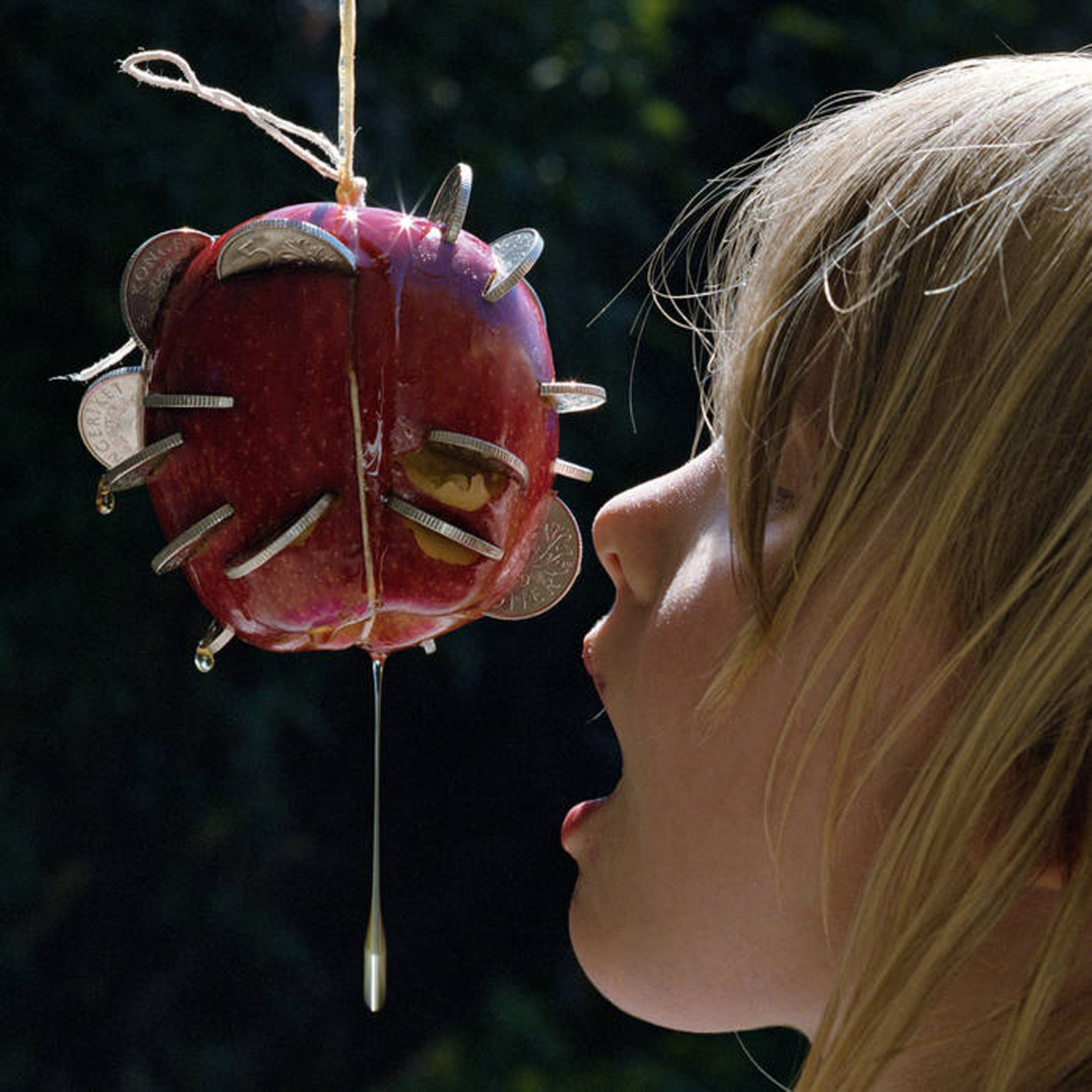 Frederikke Hoffmeier has been a prominent and distinctive voice in the harsh noise scene for the last several years, releasing a steady stream of viscerally throbbing nightmares primarily on Denmark's Posh Isolation label. With this latest release, however, Hoffmeier makes her debut for PAN. More significantly, The Drought also marks a significant leap forward in Hoffmeier's artistry, as a recent residency at MONOM in Berlin completely transformed the way she thought about both space and evoking a strong sense of place. The result of those revelations is something that transcends Puce Mary's noise roots to arrive at a place that is considerably more unique, sensuous, and intimate, though no less disturbing. Hoffmeier is still an absolutely brilliant purveyor of violent, jagged squalls of noise, but she is now quite a bit better at focusing those eruptions for maximum impact.
Frederikke Hoffmeier has been a prominent and distinctive voice in the harsh noise scene for the last several years, releasing a steady stream of viscerally throbbing nightmares primarily on Denmark's Posh Isolation label. With this latest release, however, Hoffmeier makes her debut for PAN. More significantly, The Drought also marks a significant leap forward in Hoffmeier's artistry, as a recent residency at MONOM in Berlin completely transformed the way she thought about both space and evoking a strong sense of place. The result of those revelations is something that transcends Puce Mary's noise roots to arrive at a place that is considerably more unique, sensuous, and intimate, though no less disturbing. Hoffmeier is still an absolutely brilliant purveyor of violent, jagged squalls of noise, but she is now quite a bit better at focusing those eruptions for maximum impact.
The album opens with the queasily squirming and shuddering instrumental "Dissolve," which beautifully sets the tone for everything to come, as it feels like an undulating nightmare of twisting, grinding metal and existential horror.It is an especially effective showcase for one of the most compelling aspects of Hoffmeier's artistry: her passion for collecting unusual field recordings and her talent for manipulating them into something uncomfortably otherworldly and unrecognizable.While she certainly makes use of many of the same textures and tools common in the noise scene, such elements rarely do any of the heavy lifting on The Drought.The only relatively consistent nod to familiarity is Hoffmeier's fondness for sinuously throbbing low-frequency drones, which lends an oozing and gelatinous sense of menace mingled with dark sexuality to many of the album's pieces.If that sounds a bit disturbing and perverse, that is because it is, which fits quite (un)comfortably with one of the primary themes of The Drought: body horror ("I pull a hair out of my mouth, but that is not a hair, and that is not my mouth")."The Transformation" is the definitive statement in that vein, as Hoffmeier's calm monologue about liquefying (among other things) is every bit as haunting and skin-crawlingly weird as Jonathan Glazer's Under The Skin.That piece in particular highlights another wonderfully creepy and unnerving feature of The Drought: all of the vocal pieces feel like a hushed, trance-like confessional in the eye of a snarling and churning maelstrom.
Closely related to Hoffmeier's preternatural calm is her unusually masterful control of mood and dynamics, as these nine pieces feel like they were precision-engineered to slowly unfold as a dark dream of seething dread punctuated by well-timed blasts of laser-focused violence.I never get the feeling that any part of The Drought is dictated by an unpredictable mass of pedals and cables, yet the elemental power of the more intense passages sacrifices nothing in sense of spontaneity.That supremely elegant mastery of tension and release, as well as Hoffmeier's knack for surgical slashes of primal ferocity are what make The Drought such an excellent noise album.However, there are a few other facets to her artistry that deserve attention far beyond the reaches of that insular scene.For all their grinding and gnarled texture, there is a very human and soulful center to some of these pieces, as well as some unexpected glimpses of otherworldly beauty and poetry amidst the ruin.The most striking example of the latter is "Red Desert," a meditative and quietly devastating piece that cribs some of the most beautiful lines from Antonioni's 1964 film of the same name ("I can’t look at the sea for long or I lose interest in what’s happening on land").Most of the other flashes of unexpected beauty are a bit less overt, though they can be similarly striking.For example, the simmering horror of "The Transformation" harbors an absolutely sublime passage of tenderly warbling feedback.The climactic eruption of a chirping feedback loop in "A Feast Before The Drought" is similarly great.Notably, both passages work so well precisely because Hoffmeier's recent epiphanies about space provide her more inspired sounds adequate room to breathe and flourish.
To my ears, it is the vocal-centric pieces "Red Desert" and "The Transformation" that steal the show on The Drought, but both feel like well-placed set pieces in a wall-to-wall masterpiece rather than isolated flashes of inspiration.I was legitimately blindsided by how immersive, listenable, inventive, and thoughtfully constructed this album is as an artistic statement: the cumulative power is quite impressive and not a single passage or theme ever overstays its welcome or gets diluted by unnecessary clutter.Hoffmeier's greatest sorcery here lies in the details, as The Drought is alive with vivid, vibrant and unusual textures and hidden depth.I suspect that is a gift she has always had, but her compositional talents have now reached a level where she is able to bring those elements of her work into sharper focus and it makes quite a profound difference.Hoffmeier not only conjures up a dazzling nightmare of grinding, jagged metal and wriggling, unearthly cosmic horror–she manages to make it a place that I have no desire to leave.This an absolute tour de force and one of my favorite albums of the year.
Read More
- Administrator
- Albums and Singles
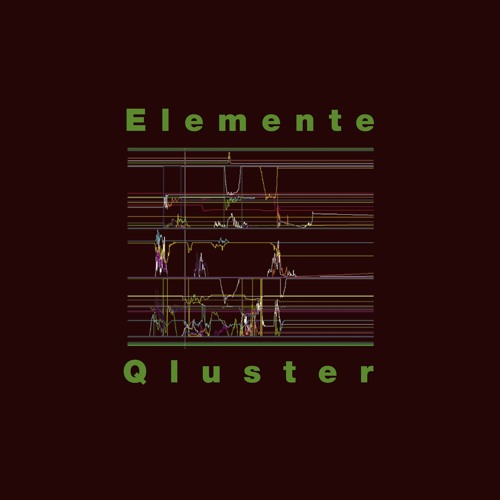 Elemente is a dynamic and hypnotic record, not at all reliant upon listener knowledge of the three incarnations of K/C/Qluster nor of the relentless creativity of Hans-Joachim Roedelius. The trio play a range of analogue synths and tracks are coherently sequenced into a whole album: two elements which combine to give a richness, depth and balance to their expression.
Elemente is a dynamic and hypnotic record, not at all reliant upon listener knowledge of the three incarnations of K/C/Qluster nor of the relentless creativity of Hans-Joachim Roedelius. The trio play a range of analogue synths and tracks are coherently sequenced into a whole album: two elements which combine to give a richness, depth and balance to their expression.
In March 2017 I attended a solo performance by Han-Joachim Roedelius in a Knoxville church. He played piano and electronics for an hour or so. The audience was clearly a reverent group who knew why they were there. When the music ended, there were a few seconds of silence and those of us close enough saw and heard him weep. After a blistering standing ovation he was in fine form, mingling for a long time with fans and even suggesting "ein selfie?" A few days later I heard that his other US dates had been cancelled for health reasons. He must be feeling better, as this seventh album as Qluster from the eighty-four year old Roedelius (with Onnen Bock and Arming Metz) is a thrilling and poignant marvel, crafted with daring, unpretentious gusto.
As with their earliest recordings, Qluster adjourned to improvise in the remote hamlet of SchoÃànberg, before chamfering the sessions down to these eight tracks and adding only sparse additional elements to the tracks "Zeno", "Tatum" and "Xymelan". Of the aforementioned analogue instruments - ARP 2600 - is used to particularly fabulous effect on "Zeno", and Farfisa organ beautifully underscores a Fender Rhodes piano melody on "Symbia. Several pieces rest on either slow or faster beats with "Tatum" having a slightly more heated and abrasive texture than the others.
I have to speculate that "Zeno" is (well) named for the Greek philosopher (c. 490-430 BC) author of certain paradoxes, including one which supports Parmenides' notion that (contrary to the evidence of our senses) change does not exist and thus motion is nothing but an illusion. There is no need for speculation about the importance of Roedelius whether in the three incarnations of K/C/Qluster, or with Conrad Schnitzler, Dieter Moebius, Michael Rother, Bowie, Eno, Conny Plank and others, and Elemente lives up to his creative history.
My dreamy nature is rewarded by "Weite" and "Infinitum" - two stunning tracks. Depending on one’s own imagination, "Weite" may suggest floating in an echo chamber, wandering to the top of a hill surrounded by clouds, or time-traveling back to a childhood moment when a parent helped with kite flying as waves rolled along a sunny beach. The last piece, "Infinitum" maybe creates the atmosphere of an eternal trip into endless space, a journey which Hans-Joachim Roedelius may arguably be closer to making than some of us, but no time soon I trust.
samples:
 
Read More
- Administrator
- Albums and Singles
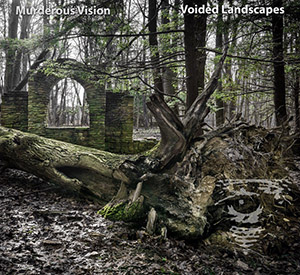 As Murderous Vision, Ohio's Stephen Petrus has been one of the pioneers in the US death industrial/power electronics scene for over two decades now. It is a stylistic variation that has largely managed to avoid many of the pitfalls of its European counterpart ("provocative" political ambiguity, rampant misogyny, etc.) but retained the more creative, occasionally occult-tinged, depressive darkness. On Voided Landscapes, he continues this trend with a bit more environmental influence, both overt and subtle. Darkness Descends is a compilation for a festival Petrus curated this past summer in Cleveland and, while produced for the festival itself, stands strongly apart as a compilation of artists that have defined the style.
As Murderous Vision, Ohio's Stephen Petrus has been one of the pioneers in the US death industrial/power electronics scene for over two decades now. It is a stylistic variation that has largely managed to avoid many of the pitfalls of its European counterpart ("provocative" political ambiguity, rampant misogyny, etc.) but retained the more creative, occasionally occult-tinged, depressive darkness. On Voided Landscapes, he continues this trend with a bit more environmental influence, both overt and subtle. Darkness Descends is a compilation for a festival Petrus curated this past summer in Cleveland and, while produced for the festival itself, stands strongly apart as a compilation of artists that have defined the style.
Live Bait Recording Foundation
It is hinted at in the title, but one of the defining features of Voided Landscapes is the way Petrus captures the sense of not just urban decay, but its impact on the surrounding rural areas of Cleveland.Deep in the Rust Belt of the United States, the sound of industrial rot and polluted nature seeps into all nine of these songs.This is not new territory for Petrus:his 2010 film City/Ruins covered this topic, as well as the local artists inspired by their surroundings.Here it is very apparent though:right from the low end rumble and bleak piano sounds of "Purity Burns" there is a sense of spacious darkness and even what sounds like field recordings of ducks takes on a dour vibe.
The grinding noise that opens "Voided" sets the stage for a similar piece, which soon becomes a clattering space within a swampy, oppressive sense of ambience that is just oozing with despair.There is variation throughout the album of course, but the bleakness is largely unrelenting."Corrosive Materials" continues from the aforementioned "Voided" and concludes the disc, but adds in a bit of snappy rhythms and distortion to give an added dimension."Moss and Bones" and "Concussion" also feature Petrus working with more rhythmic elements, mostly within a framework of treated loops and noise, however.
Speaking of noise, it is never far in these nine songs."Radiate" is pure vintage power electronics, with swirling distortion, squelching electronics, and a harsh vocal performance from Petrus that is processed into oblivion."Sifting Ash' is similarly distorted, but less aggressive.Built upon a far off synthesizer drone, loops and textures are added in to give a strong sense of texture, and even a bit of autoharp from Pauline Lombardo offsets the chaos.
samples:
 
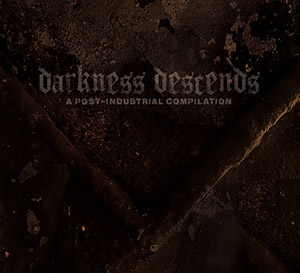 Darkness Descends, curated by Petrus, was intended to accompany the festival of the same name, but works on its own as a compilation of like minded friends and artists that share a similar vision, and aesthetic. Murderous Vision opens the set with a wonderfully rhythmic piece, littered with prominent samples, metallic banging, and overdriven voices.Gnawed's "The Harrowing Dark" and The Vomit Arsonist's "Dispirited" fit in quite well, with both artists presenting massive, foundation shaking rumbles and destroyed vocal performances.
Darkness Descends, curated by Petrus, was intended to accompany the festival of the same name, but works on its own as a compilation of like minded friends and artists that share a similar vision, and aesthetic. Murderous Vision opens the set with a wonderfully rhythmic piece, littered with prominent samples, metallic banging, and overdriven voices.Gnawed's "The Harrowing Dark" and The Vomit Arsonist's "Dispirited" fit in quite well, with both artists presenting massive, foundation shaking rumbles and destroyed vocal performances.
"Ultimatum" from Compactor is similar in intent, but the approach is somewhat different.There is a tighter sense of structure and with its pummeling thuds and loop-heavy structure, the piece nicely builds and evolves through its dissonant textures.Theologian's "I Shed Your Corpse" is one of the high points on here, as is Steel Hook Prostheses's "Orbitoclast".The former is a pairing of melodic electronics with pounding rhythms and vocals that, while processed, end up not entirely devoid of their humanity.SHP's contribution is wobbling pseudo-melodies and dissonant noise, but shaped into a piece that is dramatic and majestic in its gloom, with an exceptional sense of depth overall.
Both Stephen Petrus's newest work as Murderous Vision and his compilation project Darkness Descends may be somewhat monochromatic in their moods, but Voided Landscapes and the nine other artists who contribute to the compilation show that there are multiple shades of that brown/gray grime that covers the death industrial scene.There is a sense of depth and variation to this desperation that is perversely enjoyable, and highly recommended for anyone who likes their music dark, dissonant, but also nuanced and well developed.
samples:
 
Read More
- Administrator
- Albums and Singles
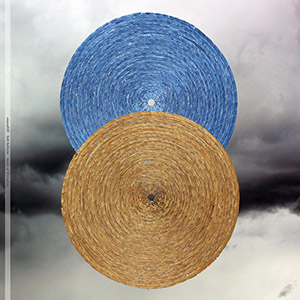 In four lengthy segments, each inhabiting its own side of vinyl, Brooklyn based Bob Bellerue presents a record that draws from his multitude of styles, from carefully constructed drones and outbursts of harsh noise, to less traveled territories, such as subtle melodies. Combined with experimental strategies learned from Bellerue’s work as a sound technician and Music of Liberation becomes a fascinating work in the canon of experimental sound and music, exceptional from both its composition as well as the production.
In four lengthy segments, each inhabiting its own side of vinyl, Brooklyn based Bob Bellerue presents a record that draws from his multitude of styles, from carefully constructed drones and outbursts of harsh noise, to less traveled territories, such as subtle melodies. Combined with experimental strategies learned from Bellerue’s work as a sound technician and Music of Liberation becomes a fascinating work in the canon of experimental sound and music, exceptional from both its composition as well as the production.
The material that comprises this set was all recorded on a single day in Portugal, utilizing a combination of the expected (pedals, contact mic, amps) and less expected (shruti box, harmonica), but most of this is utilized in ways that render them almost unidentifiable in the swirling mass of sound.Beyond this, Bellerue re-recorded the material using the natural ambience of the Issue Project Room in Brooklyn to give an added sense of space and architectural depth to the already complex sound.
This album was in progress when legendary artist Z’EV passed and, as a friend and collaborator, Bellerue dedicated this work to him.This influence is clearly on display in the third segment of the album.Amidst an industrial metallic grind and wall of shrill feedback, rattling gongs and pounding metal is apparent, seemingly a direct nod to Z’EV’s work.This chugging, rhythmic metal sound eventually dissipates to a wall of distortion and electronics:a purely vintage harsh noise sound that, also, is a fitting tribute to Bellerue’s late friend.
There are precious few other moments where the instrumentation is obvious.In the opening bits of the first segment, what sounds like a bass guitar can be heard, generating a wobbling, distorted passage, but it is soon subsumed in a wall of harsh, buzzing crunch.Eventually the entirety of the piece is shaped into a churning mass of noise, the structure and dynamics continuing to shift and evolve until it takes on the sound of slowly bobbing waves.The fourth side of the set features another similar pairing of grinding harshness with distorted, yet shimmering tones.Imbued with a sense of menacing, subdued aggression, the buzzsaw noise and almost melodic droning passages swell and retreat, bouncing between chaos and order making for an exceptional mix.
The second piece takes the mood from malignant to mournful but keeps things just as complex.Buzzing layers are punctuated with piercing, sharp ones, not unlike the feedback equivalent of the Psycho soundtrack.A mix of meandering and stabbing noises continues throughout as Bellerue builds the piece up, and then strips it back down.The sadness that pervades the piece never relents though; eventually evolving into a slowly shambling dynamic that goes into a massive wall of sub-bass before concluding in empty, hollow dimensions.
The melodicism may be subtle, but it is a sensibility that pervades most of Music of Liberation.It is there, but nicely couched in spiky shards of electronics, and further obscured with Bob Bellerue’s production wizardry.It is that subtlety, enmeshed in a detailed and nuanced world of distorted chaos, which gives this album an excellent sense of depth and complexity.The multitude of not just sounds, but also moods that Bellerue is able to convey within this abstract framework is a testament not only to his brilliance as a technician, but also as a composer.
samples:
 
Read More
- Administrator
- Albums and Singles
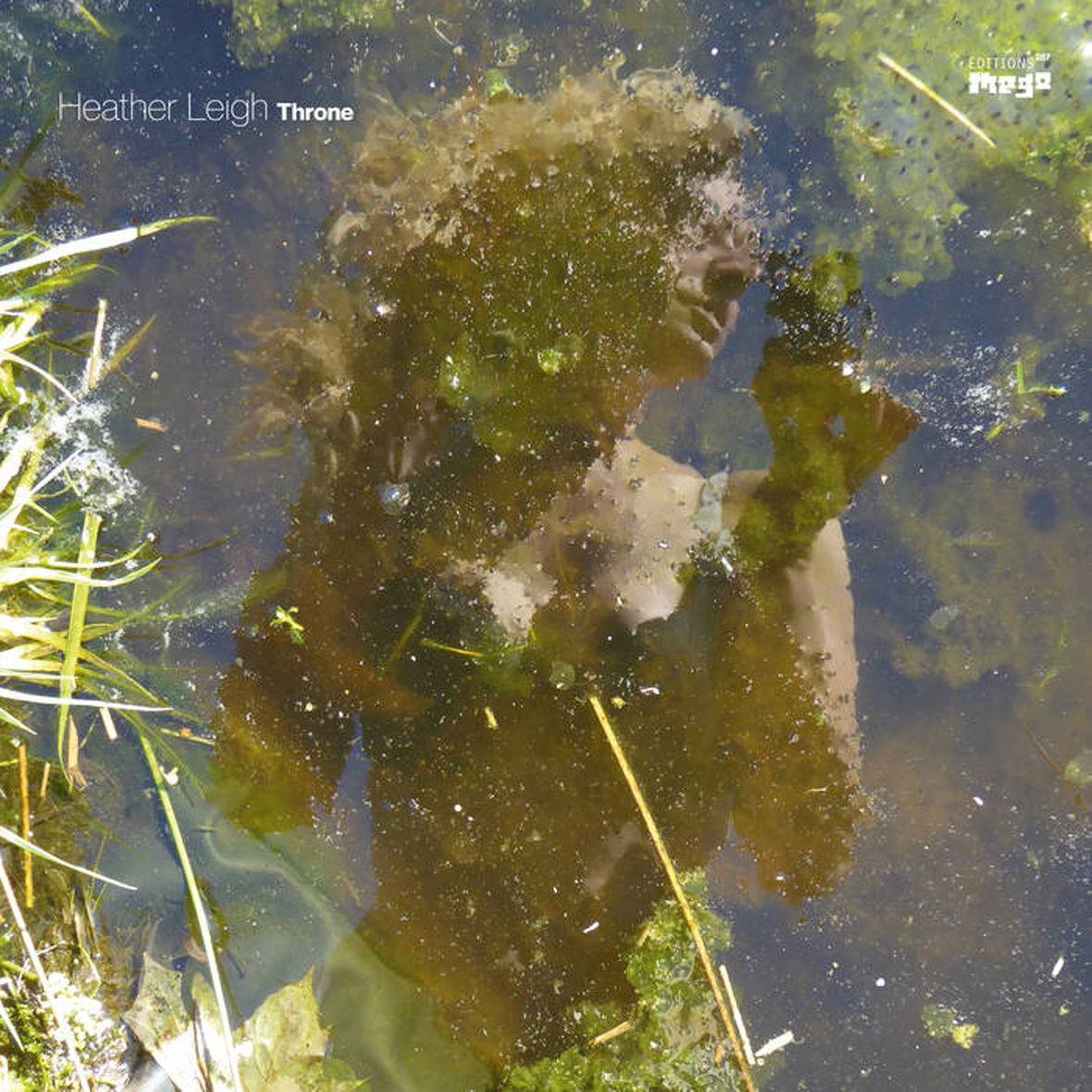 The Heather Leigh that recorded 2015's excellent I Abused Animal seems to have split into two separate artists this year: one who plays wild experimental guitar in a duo with Peter Brötzmann and another who is something of an outsider art-pop vocal diva. This is the latter Leigh. Ostensibly "a record of late-night Americana and heavy femininity," Throne is quite a bold and radical departure from expected territory, often resembling a bizarre and hallucinatory collision of Lou Reed and Kate Bush. That is only the tip of a very strange and intimate iceberg, however, as Leigh also has a curious approach to structure and a bent for confessional subject matter. For the most part, Leigh manages to make this experiment work, as Throne is a memorably unique album, but it only truly catches fire when her guitar playing bursts into the foreground.
The Heather Leigh that recorded 2015's excellent I Abused Animal seems to have split into two separate artists this year: one who plays wild experimental guitar in a duo with Peter Brötzmann and another who is something of an outsider art-pop vocal diva. This is the latter Leigh. Ostensibly "a record of late-night Americana and heavy femininity," Throne is quite a bold and radical departure from expected territory, often resembling a bizarre and hallucinatory collision of Lou Reed and Kate Bush. That is only the tip of a very strange and intimate iceberg, however, as Leigh also has a curious approach to structure and a bent for confessional subject matter. For the most part, Leigh manages to make this experiment work, as Throne is a memorably unique album, but it only truly catches fire when her guitar playing bursts into the foreground.
The opening "Prelude to Goddess" does not waste any time in throwing down the gauntlet with Leigh's curious new vision, as it lyrically lies somewhere between a lust-filled teenage diary entry and Velvet Underground-esque street-level reportage.That makes for quite a disorienting stew of uneasily co-existing elements, as lines like "the way you dance makes me cream" and "I love your leopard jeans so much" are swooningly delivered over a sublime backdrop of slowly pulsing and chiming guitar.The following "Lena" takes that eroticism into considerably darker and more uncomfortable territory, with lyrics about lifting up her skirt and being "the kind of girl that never forgets what your daddy did."It would be an understatement to say that Leigh's approach to Americana is an idiosyncratic one, but Leigh's tales of sex, longing, heartache, drunken dancing, and troubling family dynamics undeniably fit well within the timeless country and blues continuum, even if she updates the language and the context a bit.Her unconventional use of slide guitar fits the bill as well.I suppose that makes Throne a deeply experimental and post-modern blues album of sorts, yet Leigh's vocal delivery and approach to song structure render it almost unrecognizable as such, as she sounds far more like an atypically throaty and libidinal classical vocalist than like Bessie Smith and she willfully eludes almost anything resembling a conventional verse, chorus, or hot-blooded rhythm in favor of a languorous and dreamlike amorphousness.There are some repeating refrains of sorts, but they seem to blossom forth organically rather than pivoting on a chord change or adhering to a structured trajectory.
While the first half of the album definitely delves into the more daring and nakedly intimate subject matter, the strongest pieces come a bit later.On "Scorpio and Androzani," for example, Leigh's tender and understated vocals fit a bit more seamlessly with her woozy slide guitar accompaniment.The difference is subtle, but it feels more like a complete song than a vocal piece that also happens to have to guitar in the background.Even better still is "Soft Seasons," which is built around a viscerally howling guitar melody and a feeble, broken-backed drum machine groove.Even when the melody disappears to make room for the vocals, the strangled and moaning guitar tone often remains, which provides an appropriately primal foundation for Leigh's swooping and wailing vocals.Much like the rest of the album, however, it can feel bizarrely anachronistic, as it features rhyming couplets like "Hypnotized by fame, bitten by fire.Won't you say my name?It's my only desire."That subject matter (fame is hard!) seems far more at home at home in classic rock and contemporary hip-hop fare than it does on an avant-garde guitarist’s album, which makes me feel like there is also a bizarre invented persona element to this album akin to Haley Fohr's Jackie Lynn project.I truly have no idea where personal/confessional ends and artifice begins with this album.
That said, just about everything about Throne is bizarre and wrong-footing, which makes it quite a challenging listen from start to finish.On the one hand, the most immediately gratifying pieces tend to be either the more straightforward ones or those that feel like a continuation of I Abused Animal, such as "Soft Seasons" or the alternately rippling and fiery centerpiece "Gold Teeth."For me, the latter pieces are definitely the best ones on the album.On the other hand, I very much appreciate that Leigh took quite a gamble with this album rather than just making I Abused Animal 2, particularly since she is revered primarily as an inventive instrumentalist rather than as a songwriter.I also appreciate what a truly bizarre album this is.It is abundantly clear that Leigh put a lot of time and thought into crafting a coherent and unique vision: regardless of its flaws and quirks, Throne is unquestionably a strong and confident artistic statement unlike anything else that I have heard.I just do not know quite what to make of it.Perhaps it is simply not for me though.I am not sure who such an album would deeply resonate with, but my guess would probably be someone like David Lynch.He would no doubt be delighted by Leigh’s ungraspable and vaguely unnerving blurring together of "Siren" and "honky-tonk jukebox" into something that ambiguously rides the line between hypnagogic country music, catharsis, and nightmare.
Read More
- Creaig Dunton
- Albums and Singles
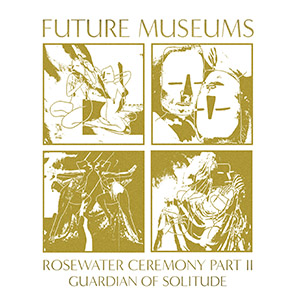 Brainwashed and Holodeck Records are proud to premiere "Closed Eye", by Future Museums, from the album Rosewater Ceremony Pt. II: Guardian of Solitude coming out October 19th. Following up the first installment from earlier in 2018, Neil Lord (Thousand Foot Whale Claw, Single Lash), "Closed Eye" is awash with lush synthesizers and pensive, plaintive guitar work delicately unfurled over haunting ambience. The title specifically refers to how Lord recorded the song: live, in one take, while blindfolded. The full cassette is even more multifaceted, capturing everything from pulsating synth arpeggios and bubbling keyboards to introspective, expansive atmospheres. Rosewater Ceremony Pt. II: Guardian of Solitude is available to order now on tape and digital via holodeckrecords.com.
Brainwashed and Holodeck Records are proud to premiere "Closed Eye", by Future Museums, from the album Rosewater Ceremony Pt. II: Guardian of Solitude coming out October 19th. Following up the first installment from earlier in 2018, Neil Lord (Thousand Foot Whale Claw, Single Lash), "Closed Eye" is awash with lush synthesizers and pensive, plaintive guitar work delicately unfurled over haunting ambience. The title specifically refers to how Lord recorded the song: live, in one take, while blindfolded. The full cassette is even more multifaceted, capturing everything from pulsating synth arpeggios and bubbling keyboards to introspective, expansive atmospheres. Rosewater Ceremony Pt. II: Guardian of Solitude is available to order now on tape and digital via holodeckrecords.com.
Read More